During the VriddhiVeda celebration, Nature Bio Foods hosted a lively and insightful panel discussion, marking three decades of pioneering organic practices in India.
At the Nature Bio Food facility in India, industry veterans and company leaders in the organic food sector, including Mr Poppe Braam (CEO of DID IT), Mr VK Arora (Chairman of LT Foods), and Brig. JS Oberoi (retiring CEO of Nature Bio Foods), gathered to discuss the industry’s future. These notable personalities graced the podium at the Nature Bio Food India facility exchanging ideas on the future of the Organic Industry, and various aspects of the global organic food industry. The panel discussion Hosted by Ms. Swati Tomar, focused on the evolving landscape of the organic market, the importance of supporting small farmers, and strategies to overcome the challenges in supply chain complexities and certification processes.
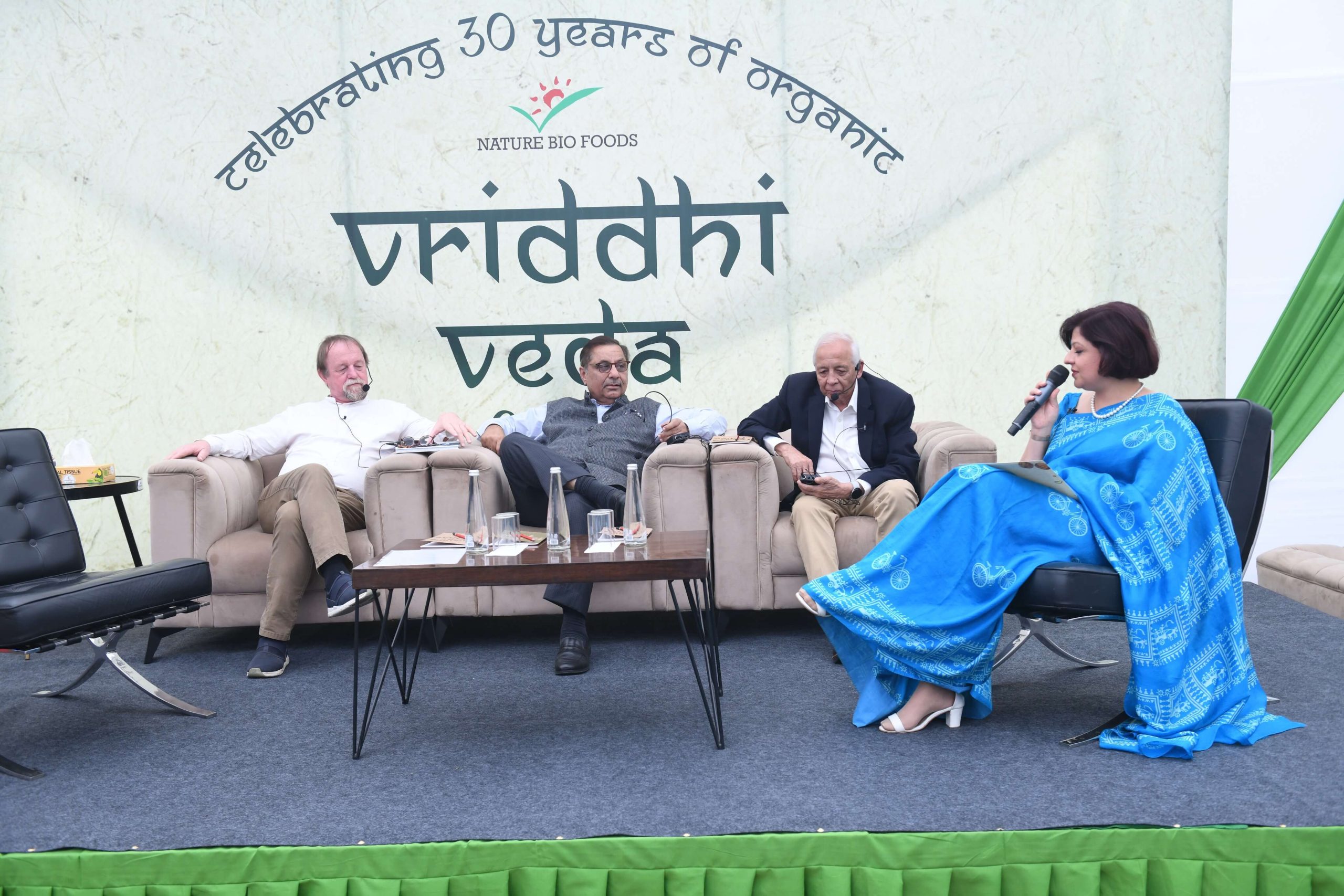 Synopsis: At the forum key topics of the discussion included the evolution of consumer perceptions, the importance of supporting small farmers, and the impact of government policies. The discussion highlighted the need for continuous innovation, strategic marketing, and robust traceability to drive future success in the organic sector. The forum was a blend of deep insights and light-hearted moments, celebrating the journey and envisioning a prosperous future. Mr. Braam addressed the transformation of consumer perceptions towards organic products since the 1980s, noting that initially, the movement was driven by a small, dedicated group of enthusiasts. He emphasized the need for strategic marketing and consumer education as the industry matures. Brigadier Oberoi talked about the critical role of government policies in shaping the organic sector and the importance of finding innovative solutions to navigate regulatory challenges. The discussion also touched on the necessity of supporting small farmers, with a focus on creating a more sustainable and resilient supply chain. The panel concluded with a forward-looking vision for Nature Bio Foods, emphasizing the company’s commitment to international expansion, product innovation, and maintaining high standards of traceability to meet the growing global demand for organic products.
Synopsis: At the forum key topics of the discussion included the evolution of consumer perceptions, the importance of supporting small farmers, and the impact of government policies. The discussion highlighted the need for continuous innovation, strategic marketing, and robust traceability to drive future success in the organic sector. The forum was a blend of deep insights and light-hearted moments, celebrating the journey and envisioning a prosperous future. Mr. Braam addressed the transformation of consumer perceptions towards organic products since the 1980s, noting that initially, the movement was driven by a small, dedicated group of enthusiasts. He emphasized the need for strategic marketing and consumer education as the industry matures. Brigadier Oberoi talked about the critical role of government policies in shaping the organic sector and the importance of finding innovative solutions to navigate regulatory challenges. The discussion also touched on the necessity of supporting small farmers, with a focus on creating a more sustainable and resilient supply chain. The panel concluded with a forward-looking vision for Nature Bio Foods, emphasizing the company’s commitment to international expansion, product innovation, and maintaining high standards of traceability to meet the growing global demand for organic products.
Read the detailed panel discussion below:
Host Introducing (Ms. Swati Tomar): The organic industry has seen significant growth driven by global demand for healthier and more sustainable food options. However, this growth comes with challenges, including stringent certification processes, supply chain complexities, and the need for continuous innovation to meet consumer expectations. Today’s panel discussion aims to explore these dynamics, offering insights from industry experts on navigating the opportunities and hurdles in the organic market. We are honored to have distinguished guests with us today. May I please request Mr. VK Arora, Mr. Poppe Braam, and Brigadier JS Oberoi to join us on stage?
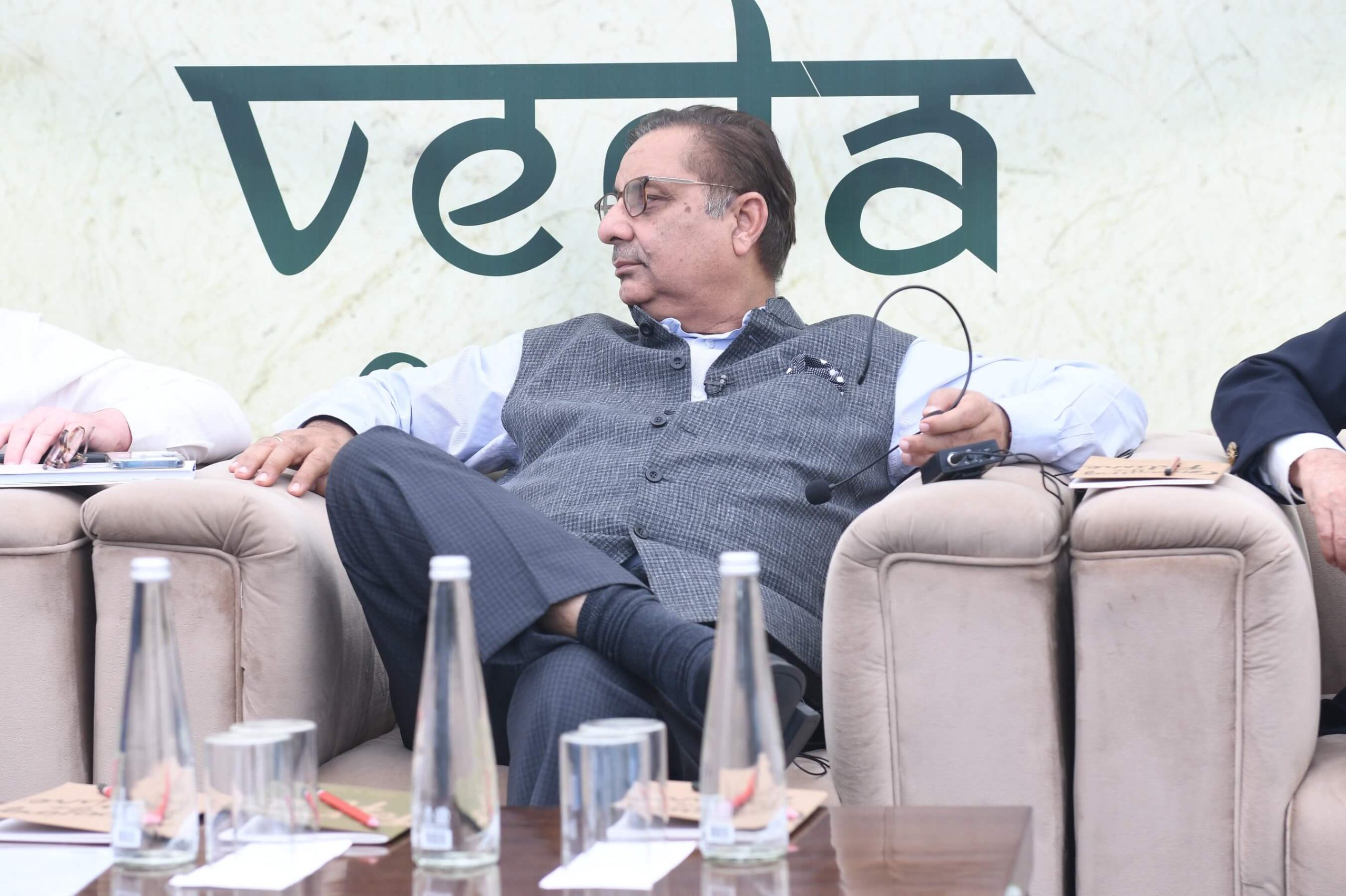
Ms. Tomar(introducing Mr VK Arora): Because you chose to lead the way in the organic industry from India, we are celebrating this day today. Thank you, sir.
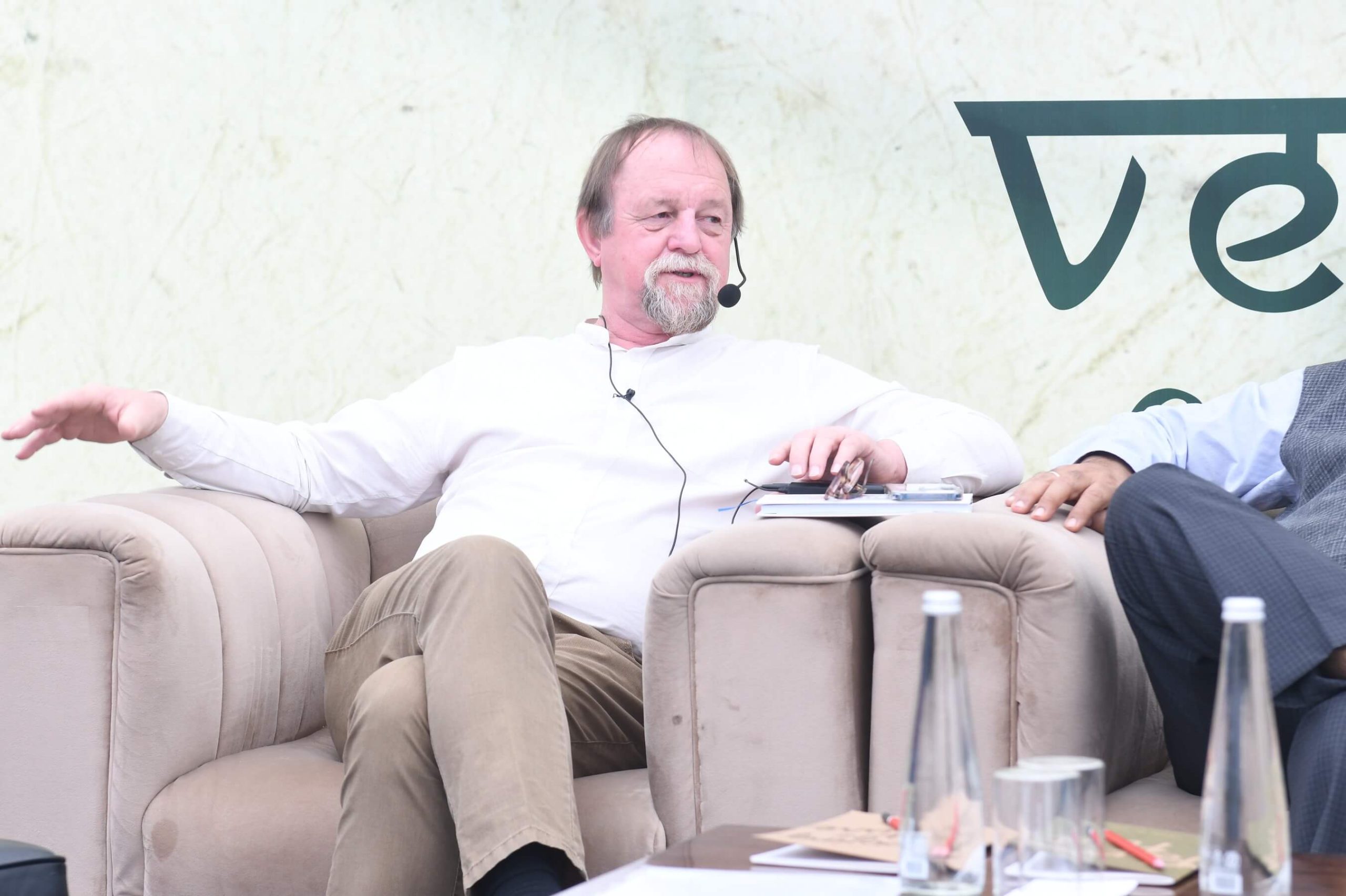 Ms. Tomar(introducing Mr. Poppe Braam): Next, allow me to introduce Mr. Poppe Braam, CEO of DID IT, and former CEO of DO IT Organic. He is a pioneer of the organic industry and one of the very first organic producers in the Netherlands back in 1980. He is also a founding member of the organic certification body in the Netherlands, SKAL. Mr. Braam, it’s an honor to have you with us. Thank you.
Ms. Tomar(introducing Mr. Poppe Braam): Next, allow me to introduce Mr. Poppe Braam, CEO of DID IT, and former CEO of DO IT Organic. He is a pioneer of the organic industry and one of the very first organic producers in the Netherlands back in 1980. He is also a founding member of the organic certification body in the Netherlands, SKAL. Mr. Braam, it’s an honor to have you with us. Thank you.
Ms. Tomar (introducing Brigadier JS Oberoi): Brigadier Oberoi became CEO of Nature Bio Foods in 2018. Under his leadership, the company has grown significantly, bringing us closer to our 100-million-dollar dream. This transformation included expansion into new Western markets, increased profitability, and a solidified position as a major player in the global organic food industry.
Ms. Tomar: Mr Braam, since you started organic farming in 1980, how has consumer perception of organic products evolved, and how has this impacted the food industry?
Mr. Braam: In the ’70s and ’80s, organic farming was more of a movement than a business. Everyone involved was also a consumer. It wasn’t until the ’90s, when distribution and shops were established, that we began talking about consumers. Within the organic movement, we refer to “dark green” consumers who are knowledgeable and committed and “light green” consumers who are interested but less informed. Marketing organic products is still a recent development. Even after 30 years, organic food represents a small percentage of global food production. We’re still in the early stages of defining a consumer market for organic products.
Ms. Tomar: Thank you, Poppe. Mr. Arora, what is the importance of the organic business to the entire LT group, and what were your thoughts 30 years ago when you planted the first seed of Nature Bio Foods?
Mr. Arora: Thank you, Swati. We were in our conventional business when some customers approached us for organic products. I found the respect we received from those customers inspiring. It motivated me to pursue the organic business, and it has been rewarding.
Ms. Tomar: Brigadier Oberoi, what are the most significant challenges facing small organic farmers today, and what steps can be taken to overcome them?
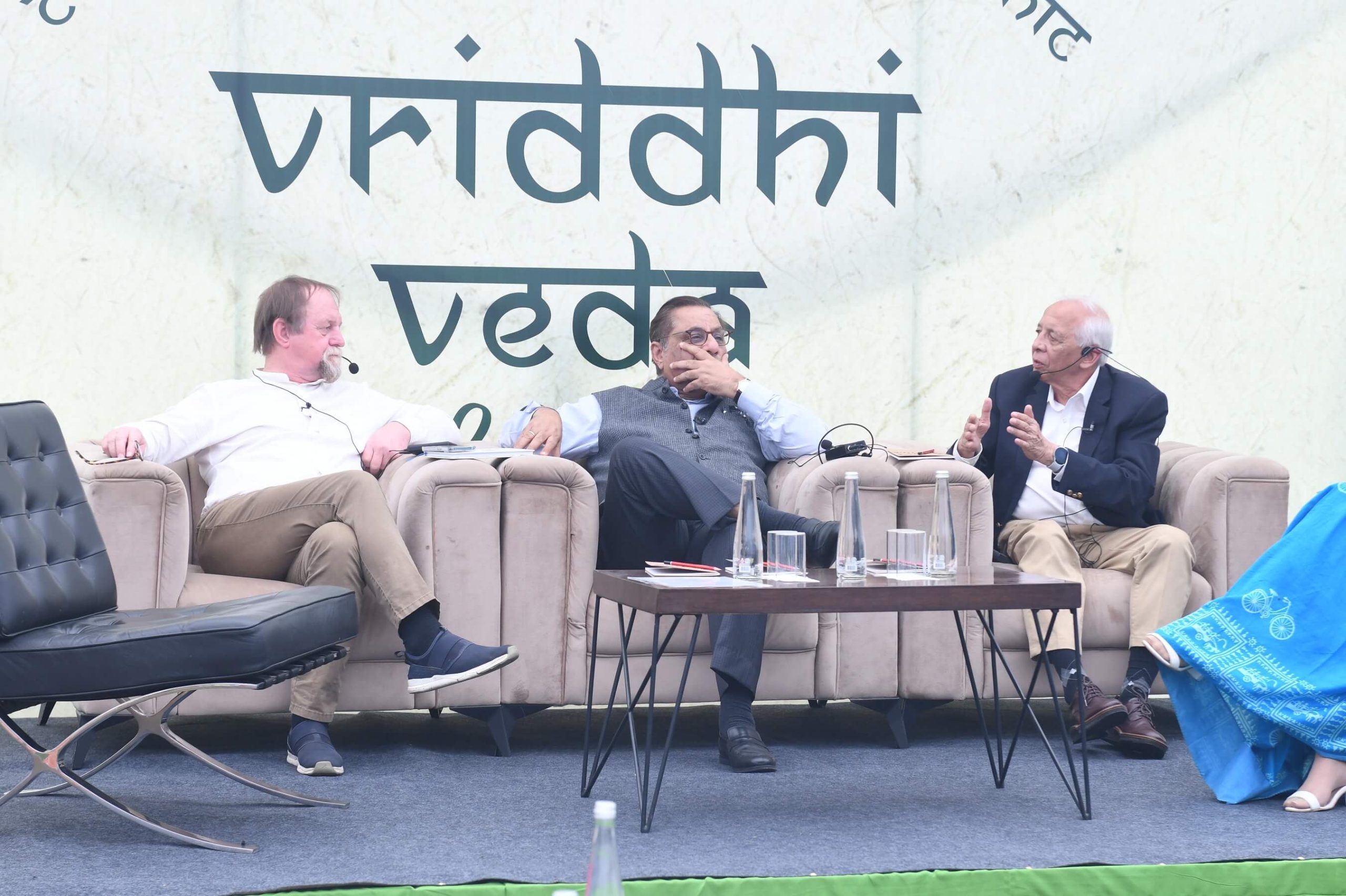 Brigadier Oberoi: Small farmers are the foundation of the organic business. We’ve grown from 10 farmers to 60,000, many of whom have been with us for decades. Their risk appetite is low, they are often in remote areas, and face unique challenges. We need to manage their risk and ensure fair compensation for their crops. This involves closing the loop through procurement and maintaining ethical and sustainable practices. Our goal is to make small-scale agriculture the center of our business.
Brigadier Oberoi: Small farmers are the foundation of the organic business. We’ve grown from 10 farmers to 60,000, many of whom have been with us for decades. Their risk appetite is low, they are often in remote areas, and face unique challenges. We need to manage their risk and ensure fair compensation for their crops. This involves closing the loop through procurement and maintaining ethical and sustainable practices. Our goal is to make small-scale agriculture the center of our business.
Ms. Tomar: Mr. Braam, what is India’s position in the broader global organic market?
Mr. Braam: In the EU, India is among the top 10 countries supplying organic products. While the Dominican Republic and Ecuador lead due to their large banana exports, India holds a strong position, particularly with basmati rice. However, there has been turmoil with products like soybean, sugar, and sesame due to various factors like logistics and government policies. India’s position in the global market is significant but still evolving.
Ms. Tomar: Considering Nature Bio Foods’ leadership in the industry, what recommendations do you have for enhancing our approach?
Mr. Braam: We need to apply business rules: know your customer, know your market position, and understand your strengths and weaknesses. This organization has grown and now includes many intelligent and motivated individuals. Despite global challenges, we can find the right strategies to succeed. It’s about choosing the right customer and playing the game well.
Ms. Tomar: Thank you. Where do you see our organic business heading in the next 30 years?
Mr. Arora: Today, the organic business is 10% of our total group business. In the next 10, 20, or 30 years, it should grow to 25%.
Mr. Braam: It will likely be more.
Mr. Arora: That makes me very happy. In Europe and the Western world, organic products occupy 30-35% of the grocery shelves. So, aiming for 25% is a reasonable expectation.
Ms. Tomar: Brigadier Oberoi, what role do government policies play in shaping the growth and sustainability of the organic food sector?
Brigadier Oberoi: Government policies have a significant impact. For example, the recent ban on non-basmati rice and duties on parboiled rice affected us. We often have to find solutions within the system. Despite the challenges, with an open-minded approach, we can navigate these policies effectively. NBF 3.0 represents a step forward, focusing on international sourcing and market expansion. It’s about improving our risk management and quality assurance, making us more resilient and capable of meeting global demands.
Questions from the audience:
Mr. Krishnendu Chattopadhyay (KC): Sir, taking the lead from your 3.0 vision, would there be new products and variants? I believe we should have a Center of Excellence to focus on future business plans.
Brigadier Oberoi: KC is right. Our rice business has grown, but we need a new blockbuster product in the next 3-4 years to ensure continued growth. This could be tea, coffee, cocoa, coconut, or spices.
Ms. Tomar: The supply chain and procurement teams should be ready for these new initiatives. Does anyone else have a question?
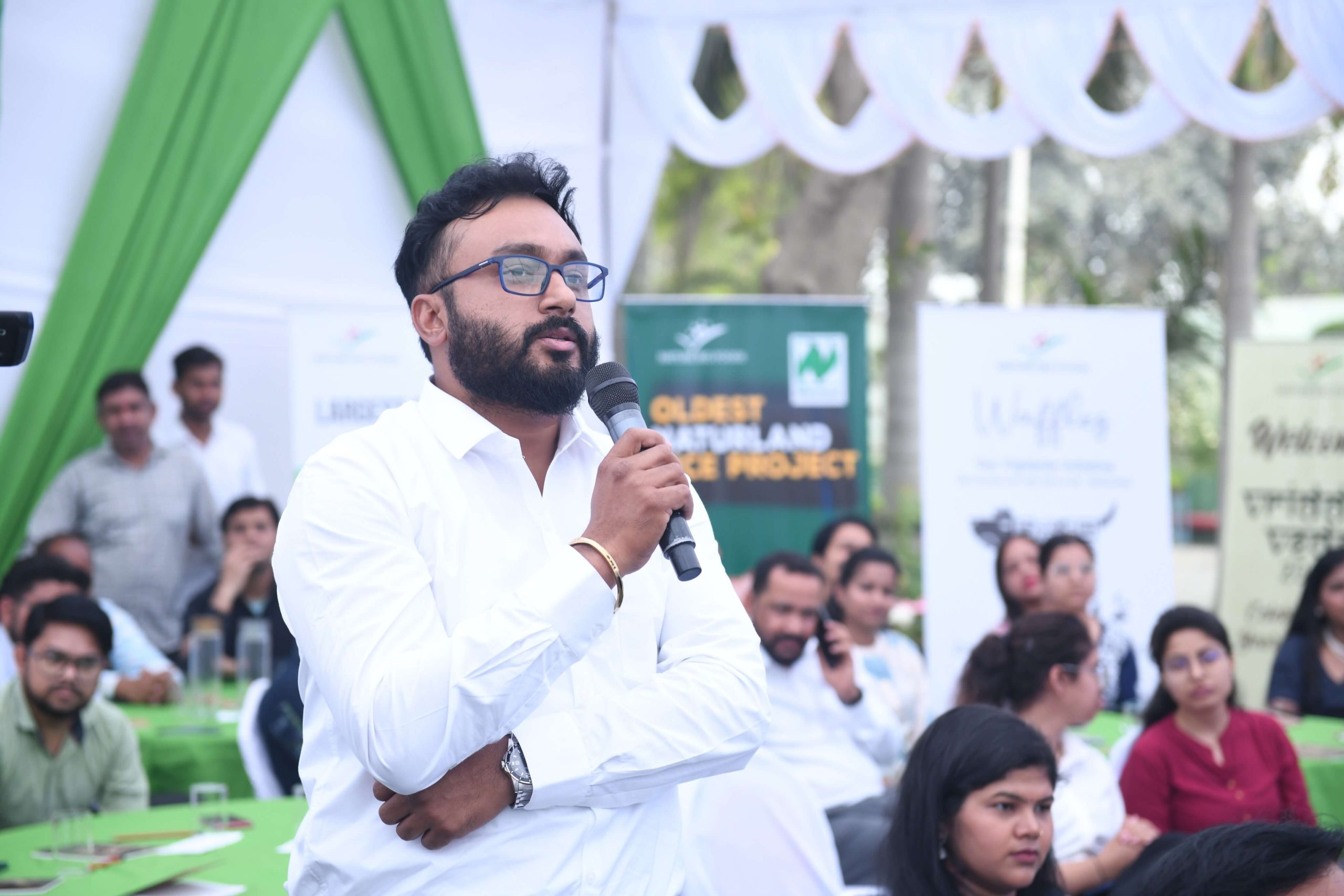 Mr. Kabir Khan: I’d like to ask Mr Braam about the impact of traceability on the Western organic consumer. How does it influence buying decisions?
Mr. Kabir Khan: I’d like to ask Mr Braam about the impact of traceability on the Western organic consumer. How does it influence buying decisions?
Mr. Braam: Traceability is crucial. Consumers want to connect with the source of their food and understand its impact. NBF has made significant strides with TraceOrigin, providing transparency from farm to table. This will be a vital marketing tool, ensuring consumers trust our products and their origins.
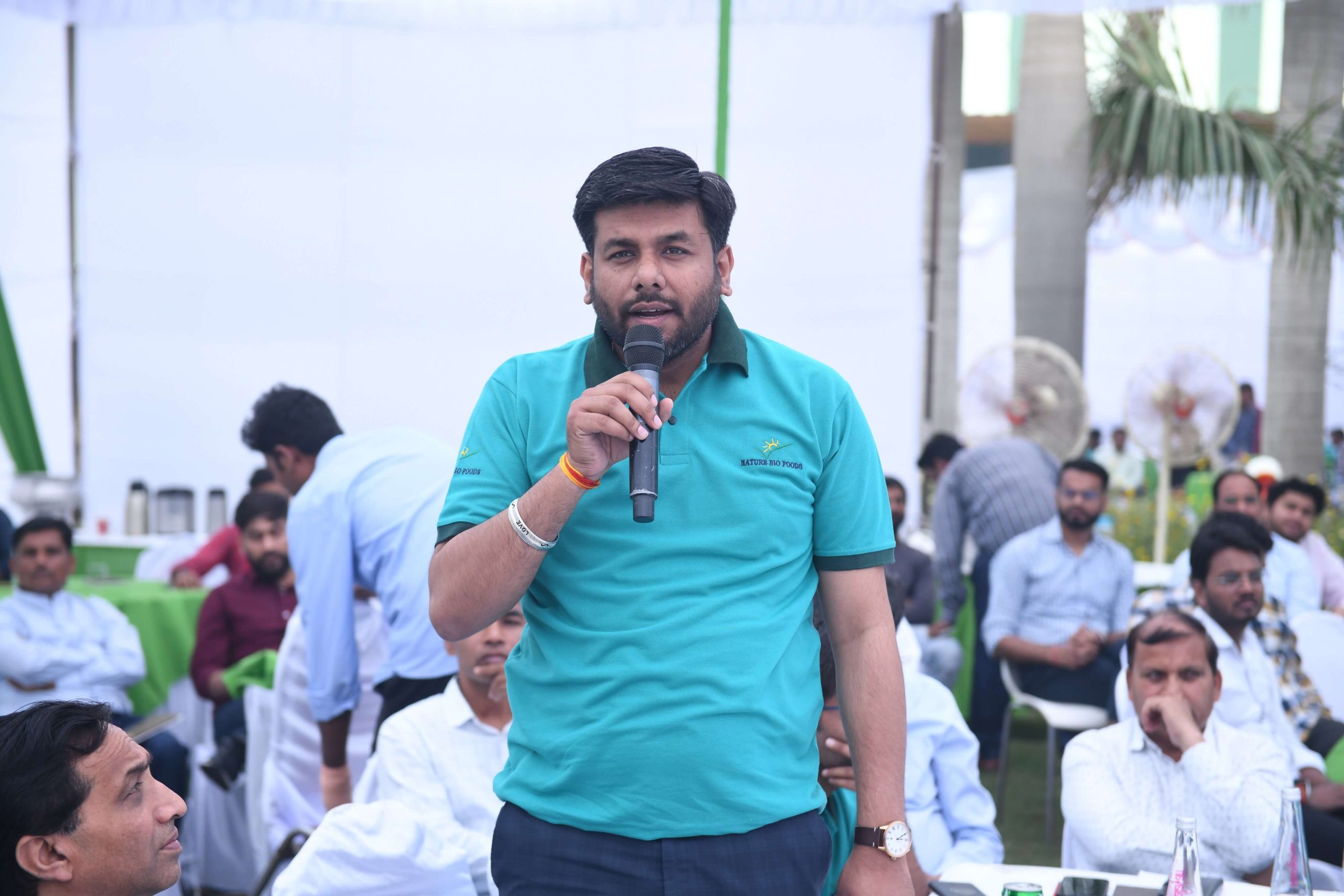 Mr. Gaurav Sharma: When entering new markets, how do you handle nervousness and keep your vision high?
Mr. Gaurav Sharma: When entering new markets, how do you handle nervousness and keep your vision high?
Mr. Arora: When faced with a tough task, I get energized. God gives me the strength to overcome any adversity.
Ms. Tomar: Thank you so much, sir. Our heartfelt thanks to all three of you for joining us and sharing your insights. Thank you to everyone for attending.
